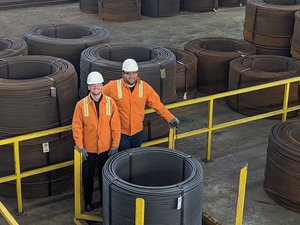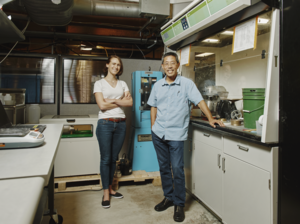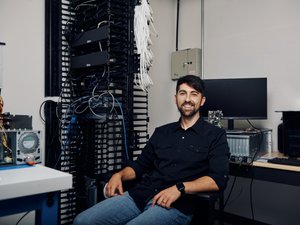Some big personnel news hit the local venture capital community Monday morning: The Engine, MIT’s new venture fund and startup accelerator, has hired Katie Rae as its president and CEO, as well as managing partner for its first fund.
Once called the "high-profile ringmaster of Boston’s start-up circus," Rae is currently co-founder and managing director of Project 11 Ventures, a local pre-seed VC firm. She previously served as managing director of Techstars Boston, the local arm of one of the more prestigious startup accelerators in the United States.
Rae’s appointment, plus the naming of Engine’s board of directors and investment advisory committee, sets MIT’s venture fund and accelerator into motion after it was first announced last fall. If you haven’t read about The Engine before, its first fund will be $150M, with MIT committing $25M of its own working capital, and it will target early-stage companies that are working on "breakthrough scientific and technological innovations aimed at transformative societal change."
In a phone interview, Rae told me that includes the following categories: manufacturing, robotics, artificial intelligence, material science engineering, biotechnology and “hard” software (“stuff that takes a long time to develop").
"We want to invest into things that over time will create an industry or transform an industry."
"We want to invest into things that over time will create an industry or transform an industry," Rae said, "and we’re willing to put the capital and effort behind creating those companies from their earlier stages. We’re prioritizing that over early revenue."
MIT’s fund will have a longer cycle than typical VC funds (10 years), though Rae declined to specify the exact length. Regardless, it sounds like Rae will be leading a venture fund and accelerator that isn’t afraid of taking larger risks than firms normally do — which is a nice contrast to the trend of VC firms expecting startups to begin prioritizing profitability over growth.
"We’re not looking for incremental ideas. We’re looking for game changers," she added.
Asked whether companies spun out of MIT will receive preferential treatment, Rae said The Engine will look at startups coming out of all the local universities, as well as local industry.
Rae said one of the most important ingredients for any company is a great team.
They have to be "people who want to work together and want to be in it for the long haul, have an ambitious visionary idea," Rae said, "but also do the hard work of waking up every single morning and reducing the risk on the company, whether in the lab or the business side." She added: "They want to do the whole thing."
I asked Rae whether diversity would play any role in how The Engine selects startups, and she said, "we absolutely care about giving everybody an equal chance to get funded so we think about that and we care about that issue."
We’re going to fund these things in their earliest stages
Rae said The Engine will typically cut checks ranging from $250K to $1M for startups, which will also receive access to The Engine's 26K-square-foot accelerator space. That space, she said, will give startups access to specialized equipment from MIT that will be available for rent at "reasonable rates."
The Engine isn't ruling out working with other venture firms on funding rounds, Rae said, but she added that "we're also not going to wait" for other firms to get on board if The Engine is ready to make an investment.
"We’re going to fund these things in their earliest stages," Rae said.
While The Engine will become her main gig, Rae said she will continue working with Project 11 and all of its portfolio companies. She said she learned about the opportunity to lead The Engine when talking to one of her closer mentors about Project 11's plan to raise a second fund, to which the mentor made a suggestion integral to the path she would take.
"He said, 'stop, you gotta talk to the folks at The Engine,' so I was introduced," Rae said.
In addition to Rae's appointment, MIT also announced The Engine's board of directors: Bob Kraft, CEO of The Kraft Group; Linda Pizzuti Henry, managing director of Boston Globe Media Partners; Sue Siegel, CEO of GE Ventures; and Jeremy Wertheimer, VP of engineering at Google and founder of Google-acquired ITA Software; Israel Ruiz, MIT executive vice president and treasurer; Arthur Samberg, owner of the financial services firm Hawkes Financial; and Anantha P. Chandrakas, the head of MIT’s Department of Electrical Engineering and Computer Science.
The Engine's investment advisory committee was also announced: David Fialkow, co-founder, and managing director of General Catalyst; Joi Ito, director of the MIT Media Lab; Jonathan Kraft, president of The Kraft Group; and Amir Nashat, a managing partner at Polaris Partners and CEO of healthcare startup Olivo Labs.








